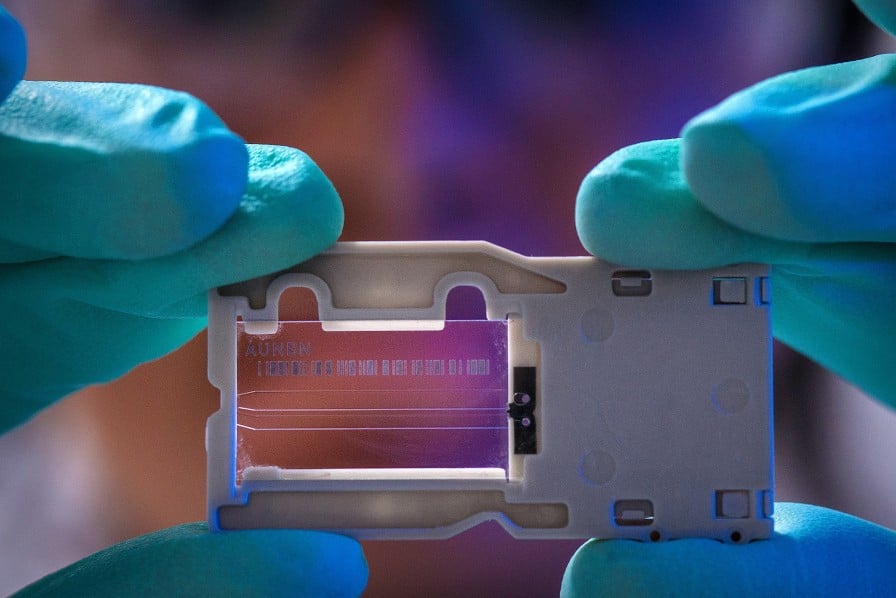The intersection of healthcare and technology, known as ‘medtech’, is improving general practice, medical research and surgical procedures. Australia has a rich history of medtech breakthroughs, and as this industry continues to grow on a global scale it is playing a bigger role in our lives than ever before.
Wearables and big data
It seems like everybody has a Fitbit or an Apple Watch on their wrist these days. These devices are producing huge amounts of data related to our health and overall fitness. The question is: what can the healthcare sector do with it all?
One idea is that machine learning algorithms will be able to analyse the data and, by doing so, make sensible predictions about the risks to users of certain diseases. This kind of ‘big data’ analysis is already being used by life insurers in an effort to get policyholders to stay healthy (thereby reducing claims for the insurer).
One of the most successful campaigns to date is the AIA Vitality program, which encourages people to quit smoking, eat better and get active. Under the program, policyholders who agree to use a wearable device and share the data with AIA are eligible for up to a 20% discount to their premiums. The concept of ‘permissioning’ your personal health data in exchange for a financial reward is gaining traction around the world.
However, there are concerns that the data could be used to deny coverage to consumers or make their premiums more expensive.
Data privacy is also an ongoing concern. In Australia, the government’s My Health Record has undergone a public backlash despite the support of the Australian Medical Association (AMA). Dr Tony Bartone, president of the AMA has urged the Government to guarantee the security of My Health Record and not “waste this historic opportunity to provide Australians with a modern, efficient, and secure electronic health record”.
However, there are plenty of ethical concerns about the initiative – not limited to the issue of consent and the risk of ‘re-identification’ through the use of supposedly anonymous data. If you want to opt out of My Health Record you have until 15 November 2018 to do so online.
Remote monitoring and online chemists
New technology is also cutting down on the need for people to make the trip to their GP with the introduction of remote monitoring. This is convenient for those of us who don’t have the time for a doctor’s appointment – but it can be essential for people living in rural Australia.
Remote monitoring allows patients to use a mobile medical device to perform a routine test and send the data to a healthcare professional in real time. Common types of remote monitoring include glucose metres for patients with diabetes and heart or blood pressure monitors for patients receiving cardiac care.
And with the rise of online pharmacies, patients don’t even need to make the trip to their local chemist to pick up their prescription medicine.
Technology giant Amazon broke into the pharmaceutical sector in June 2018 with its US$1 billion acquisition of PillPack, sending shares of US pharmaceutical companies tumbling. PillPack is a start-up company that lets you order prescription medicine online and have it delivered in the post.
It’s the kind of ‘disruptive’ company that makes established players nervous. The world’s largest pharmacy operator, Walgreens Boots Alliance, had US$6.5 billion knocked off its share price when Amazon announced the acquisition earlier this year.
US drug distribution stocks like Cardinal Health and McKesson also saw their share prices plunge in reaction to the news. As many as 85% of US Amazon Prime members with health insurance say they are open to purchasing their medications through PillPack, according to Deutsche Bank research.
Robot-assisted surgery
Technology is also making its way into the operating theatre. One of the most striking examples is the da Vinci Surgical System, which comprises a set of robotic arms that are 100% controlled by a surgeon. The system, which is backed by clinical evidence, uses tiny-wristed instruments that can bend and rotate far more effectively than a human hand. The operator is guided by magnified 3D high-definition vision.
The appeal of robot-assisted surgery is that it is minimally invasive for the patient and provides the surgeon much more precision and control. This video demonstrates just how precise the da Vinci can be when peeling a grape:
To date there have been 5 million procedures carried out worldwide with the da Vinci system and 44,000 surgeons have been trained to use it.
Unlocking the human genome
The application of new technology is also leading to breakthroughs in medical research.
The results of the Human Genome Project, which set out to map out the entire human DNA sequence with the help of massive computing power, were published in April 2003. In the 15 years since then medical researchers have been working out how to effectively use the data.
One of the most immediate benefits has been the ability of doctors to deliver tailored treatments based on genetic responses to drugs – a field known as ‘pharmacogenetics’. The mapping of the genome has brought with it more personalised care that allows healthcare professionals to predict your risk of cancer, for example.
Australian Ethical invests in Biogen, a US biotech company that creates, markets and manufactures therapies for people living with serious neurological and autoimmune diseases such as multiple sclerosis.
In October 2017 Biogen entered into a partnership with UK company Genomics, which specialises in the use of human genetic information to improve drug development. Genomics will help Biogen assess the genetic support for its early stage multiple sclerosis drugs.
Opthea Limited is another Australian biotechnology company we invest in. Opthea uses biologic therapy to treat eye diseases such as macular degeneration and diabetic macular edema.
We also invest in Immutep Limited, a biotechnology company that is developing treatments for cancer and autoimmune diseases. Immutep also develop products that target the underlying cause of autoimmune diseases rather than just treating the symptoms.
Investing in better health outcomes for the world
Australian Ethical is dedicated to uncovering and investing in some of the best healthcare companies around the world.
You can help fund the medical discoveries of tomorrow. In just 3 minutes you can join^ thousands of Australians who are investing their super in a healthier, happier world. Join^ Australian Ethical today.
Except where explicitly indicated, Australian Ethical does not have a relationship with any of the companies mentioned above and has not sought to assess them against our Australian Ethical Charter, which is the process we go through when making investment-related decisions.



